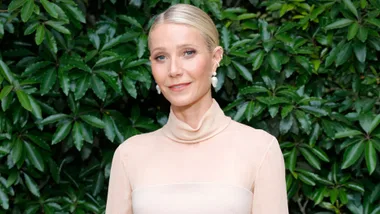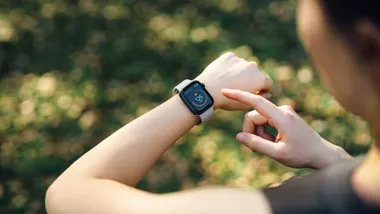Improve your longevity by eating what’s possibly the healthiest diet in the world.
On some small islands of Japan called Okinawa you’ll find more centenarians than anywhere else in the world. But what’s most surprising is that they’re not just old, they’re incredibly healthy. In fact, scientific studies of elderly Okinawans have found they have young, clean arteries and low cholesterol levels; are at extremely low risk for hormone-dependent cancers including cancers of the breast, prostate, ovaries and colon; have very strong bones and remarkable mental clarity, even over the age of 100; and have an average body mass index of 18 to 22 (lean is less than 23).
What’s more, there are virtually no women in Okinawa using hormone replacement therapy. They don’t need it. So how do they do it?
The answer is surprisingly simple, according to The Okinawa Way (Penguin) by Bradley Willcox, Craig Willcox and Makoto Suzuki.
Besides getting regular exercise and practising relaxation techniques, Okinawans have managed to combine the best of everything we know about healthy eating in their lifelong dietary plan. Here are the six main features of their way of eating.
**Eat more soy and fish
** They eat plenty of soy food and fish but little meat.
It seems that soy foods are an extremely rich source of flavonoids, powerful antioxidants that can help protect us from diseases ranging from cardiovascular disease to cancer.
They are useful against hormone-related cancers like prostate cancer or breast cancer, say the authors, as they seem to provide a weak form of oestrogen where the body needs it and block the body’s own oestrogen in locations where this hormone may induce cancer.
While you can find flavonoids in foods such as onions, apples, broccoli, and tea, soybeans have levels that exceed those in other plants by as much as 1000 times.
So think tofu, tempeh, miso, soy milk, soy flour or texturised soy protein if you’re looking for ways to improve your health and longevity.
As for fish, this is a valuable source of omega-3 fatty acids that help maintain the performance of your brain, as well as your cardiovascular and immune systems. Darker-fleshed fish, such as salmon, tuna and mackerel, are the best choice. Based on the Okinawan diet, the authors recommend you eat three calcium foods such as tofu, soy milk, or dairy; three flavonoid foods, such as soy nuts, tofu, or onions; and two omega-3 foods such as oily fish, walnuts, pumpkin seeds or omega-3 eggs or margarine, daily.
**Eat more vegies
** Okinawans eat an abundant amount of fresh vegetables, at least seven servings daily. In fact, about 80 per cent of their diet consists of plant foods, including soy products.
The pick of the crop is tofu, of course, as well as carrots and even carrot tops, cabbage, onions, bean sprouts, zucchini, sweet potatoes and green capsicums, all of which are rich sources of antioxidants. It is these that help protect your DNA and other important cells in your body from the damaging hits of free radicals, say the authors.
So load up on legumes (beans) and vegetables and don’t forget that fruit is important, too. Okinawans eat mostly tangerines, pawpaws, watermelon, bananas and pineapples.
**Eat more complex carbohydrates
** They eat lots of complex carbohydrates, at least six servings a day.
“Carbohydrates are, by and large, nature’s perfect clean-burning fuel, which is why we strongly suggest you avoid all the low-carb fad diets currently all the rage,” say the authors.
There is some evidence that complex carbohydrates will help protect you from bowel and colon cancer and, of course, they’re important for slow-burning energy.
If you’re looking for new ways to get more complex carbohydrates in your diet, consider wholegrains such as barley (a good choice in salads and casseroles), wild rice (which has a delicious, nutty flavour), buckwheat (great in pancakes), millet (which can be used for stuffing vegetables) or burghul (it makes a delicious salad with chickpeas, raisins or nuts). Okinawans eat complex carbohydrates such as legumes, rice and barley, or sweet potatoes (not refined carbs like cakes and pastries) which keep their glucose load low and protect against diseases such as diabetes.
**Drink more water and tea
** They drink plenty of fresh water and antioxidant-packed tea. “We recommend you drink enough water so that your urine is clear. Whether it takes three glasses a day or 12, that’s the right amount for you,” say the authors. Green tea is now believed to contain flavonoids that may be effective in preventing arteries narrowing and clogging. But even better news is that it can help burn fat.
**Limit fat and salt
** Okinawans limit their fat intake to 30 per cent or less of total kilojoules and their salt intake to less than 6g a day. Not only that, but the type of fat they eat is ‘good’ fat. Think mono-unsaturated fats such as those found in olive oil and almonds, and polyunsaturated fats found in walnuts, fish oil, grapeseed oil and poultry.
**Aim for five colours
** “Visuals count,” say the authors. “Okinawans feel that food should look as good as it smells and tastes.” Their advice: to make your dinner beautiful, always try to get five colours on your table – for instance, red cabbage; yellow egg, corn or squash; green vegies; white onions, tofu, rice, bread or potatoes; black olives or beans.
Garnishes can also help you to add appeal to healthy meals: green mint leaves, white sesame seeds on green salads, or finely chopped red chillies sprinkled on potatoes or tuna salad.
(The Okinawa Way – How to Improve Your Health and Longevity Dramatically, by Bradley Willcox, Craig Willcox & Makoto Suzuki) (Penguin).











